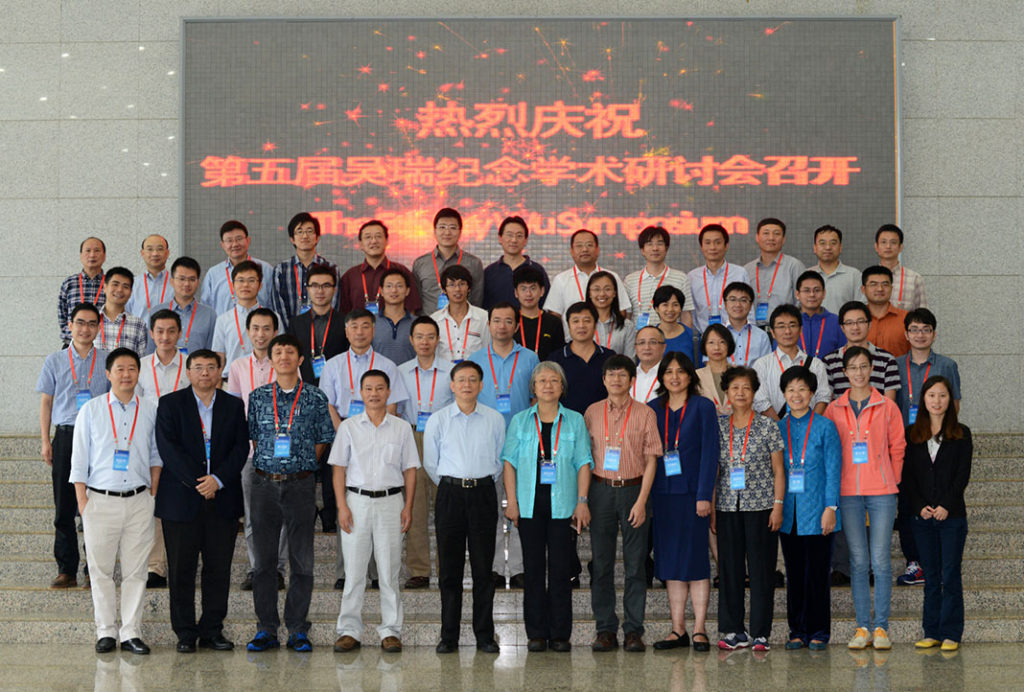THE RAY WU PRIZE
2014 Ray Wu Prize Winner
2014 Awardees at Ceremony
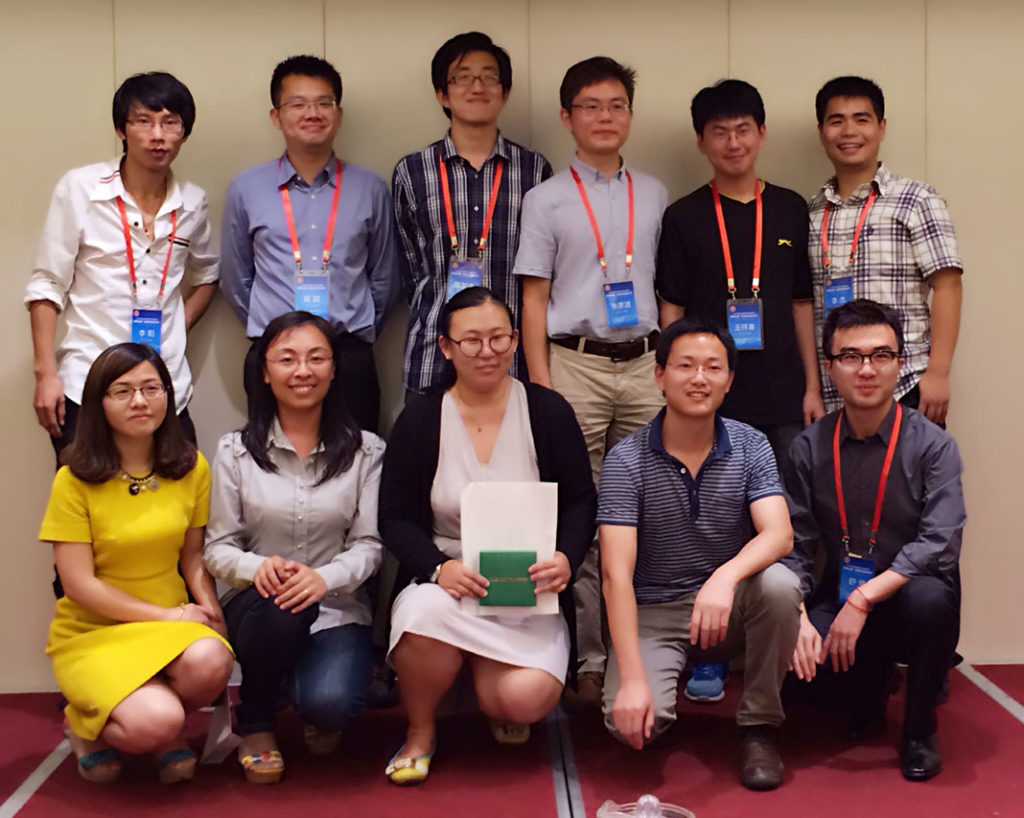
Di Zhao
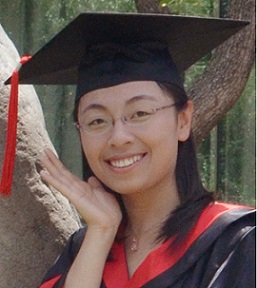 Background: Ms. Zhao received her bachelor degree from Zhejiang University in 2009, and is conducting her Ph.D. research in the laboratory of Dr. Guan Kunliang at Fudan University. Her major project was to determine the regulation of lactate dehydrogenase (LDH) and its alteration in cancer.1) She shows that acetylation of one particular isoform, LDHA, contributes to pancreatic cancer development. 2) She discovered that North‐LDHA regulation is changed in a subset of breast cancer cell lines.
Background: Ms. Zhao received her bachelor degree from Zhejiang University in 2009, and is conducting her Ph.D. research in the laboratory of Dr. Guan Kunliang at Fudan University. Her major project was to determine the regulation of lactate dehydrogenase (LDH) and its alteration in cancer.1) She shows that acetylation of one particular isoform, LDHA, contributes to pancreatic cancer development. 2) She discovered that North‐LDHA regulation is changed in a subset of breast cancer cell lines.
Citation: Ms. Zhao shows clear understanding of her project. She was able to follow where the data lead and made significant discoveries. She is very knowledgeable about protein modification and regulation of cancerous gene expression. It is very pleasant and it is easy to communicate with her. She is confident and aims high. Overall, all the judges were impressed and considered her as an outstanding graduate student.
This prize is sponsored by The Xu and Chen Foundation.
Kun Li
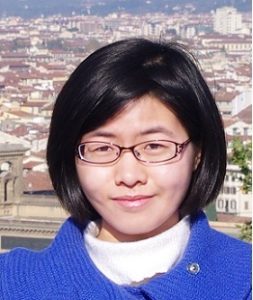 Background: Ms. Li entered the Ph.D. program in Institute of Neuroscience, Shanghai Institutes for Biological Science, Chinese Academy of Science in 2008. Her advisor is Dr.Hu Hailan. She focuses on examining the molecular mechanism underlying habenular hyperactivity in depression. She and collaborators identified a synaptic protein that modulates glutamatergic transmission in the lateral hebenula. They performed electrophysiological recording and behavirol tests to show that this synaptic protein (a form of calcium/calmodulin-dependent kinase) regulates glutamate receptor insertion into postsynaptic membrane of hebenula neuron, leading to changes in the output of these neurons in controlling depression-related circuits and the depression-like behaviors.
Background: Ms. Li entered the Ph.D. program in Institute of Neuroscience, Shanghai Institutes for Biological Science, Chinese Academy of Science in 2008. Her advisor is Dr.Hu Hailan. She focuses on examining the molecular mechanism underlying habenular hyperactivity in depression. She and collaborators identified a synaptic protein that modulates glutamatergic transmission in the lateral hebenula. They performed electrophysiological recording and behavirol tests to show that this synaptic protein (a form of calcium/calmodulin-dependent kinase) regulates glutamate receptor insertion into postsynaptic membrane of hebenula neuron, leading to changes in the output of these neurons in controlling depression-related circuits and the depression-like behaviors.
Citation: She found an important regulator related to depression. She knows broad aspects of neuroscience. She touched upon a number of different advanced techniques and made strong combine different techniques to solve complicated problems. She offers an excellent expression in discussion. She has the determination to reach high goals.
This prize is sponsored by The Xu and Chen Foundation.
Yang Li
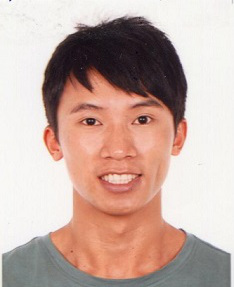 Background: Mr. Li entered the PhD program at Xiamen University in 2010. His advisor is Dr.Lin Shengcai. He and his colleagues discovered a novel signaling pathway that integrates protein phosphorylation and acetylation into the regulation of serum-deprivation-induced autophagy,an acute intracellular catabolism process that maintains energy and metabolic substrates even in the presence of ample nutrients.
Background: Mr. Li entered the PhD program at Xiamen University in 2010. His advisor is Dr.Lin Shengcai. He and his colleagues discovered a novel signaling pathway that integrates protein phosphorylation and acetylation into the regulation of serum-deprivation-induced autophagy,an acute intracellular catabolism process that maintains energy and metabolic substrates even in the presence of ample nutrients.
Citation: Mr.Li is brigt, thoughtful and very confident. He did a systematic search of the downsteam modification, and was able to produce specific antibodies. The broad coverage of all aspects leads to his new discoveries. He is knowlegeable outside his field. He knows the work of other labs and other fields. His presentation was very good. He is highly interactive, and likes to collaborate. He has a broad vision.
This prize is sponsored by Drs. Jianmin Chen and Xiaoqiao Jiang.
Xiangxi Wang
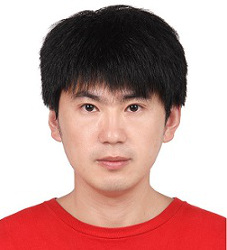 Background: Mr. Wang began his Ph.D. study under the direction of Dr. Rao Zihe at in the Institute of Biophysics, Chinese Academy of Sciences in 2009. His project mainly focuseson the uncoating mechanisms of Picornavirus and drug design based on viral structures. He has 1) solved several high resolution crystal structures of EV71 virus in distinct forms, 2) successfully designed a few leading compounds of high affinity toward the virus, which provide guides to develop potential herapeutic drugs, and 3) solved crystal structures of SCARB2 (an EV71 receptor) at neutral and acidic conditions, which shed light on the molecular basis of SCARB2-mediated invasion of EV71.
Background: Mr. Wang began his Ph.D. study under the direction of Dr. Rao Zihe at in the Institute of Biophysics, Chinese Academy of Sciences in 2009. His project mainly focuseson the uncoating mechanisms of Picornavirus and drug design based on viral structures. He has 1) solved several high resolution crystal structures of EV71 virus in distinct forms, 2) successfully designed a few leading compounds of high affinity toward the virus, which provide guides to develop potential herapeutic drugs, and 3) solved crystal structures of SCARB2 (an EV71 receptor) at neutral and acidic conditions, which shed light on the molecular basis of SCARB2-mediated invasion of EV71.
Citation: Mr. Wang has independent and innovative ideas in structural biology. He has advanced technical skills, and thinking in long terms. His work is outstanding. He is basically responsible for the two major papers. He is part of the leadership of the research team. He knows a lot about virus studies, virus entry and antiviral studies as well as the limitation in viral structural biology. He shows determination. He knows what he wants to do, and willing to meet tough challenges.
This prize is sponsored by Crown Biosciences, Inc.
Jiayu Chen
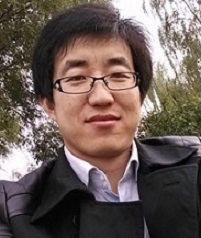 Background: Mr. Chen received his bachelor degree from Shandong University in 2010, and is conducting his Ph.D. research in the laboratory of Dr. Li Chuanyun at Beijng University. Mr. Chen works on three genomics. By taking the dual-advantages of rhesus macaque as a model animal and a species closely related to human, as the first author, he found that more than 80% of the de novo-created human protein-coding genes encoded long non-coding RNAs in rhesus macaque, with similar transcript structure and correlated tissue expression profile.
Background: Mr. Chen received his bachelor degree from Shandong University in 2010, and is conducting his Ph.D. research in the laboratory of Dr. Li Chuanyun at Beijng University. Mr. Chen works on three genomics. By taking the dual-advantages of rhesus macaque as a model animal and a species closely related to human, as the first author, he found that more than 80% of the de novo-created human protein-coding genes encoded long non-coding RNAs in rhesus macaque, with similar transcript structure and correlated tissue expression profile.
Citation: He understands the field well, and was able to develop novel datasets and methods to analyse de novo genes in primates. He is aware of broad medical problems and was able to address the other areas briefly. His presentation is clear, and his answers are sharp. He is ambitionus and will keep doing comparative evolution biology.
This prize is sponsored by The Xu and Chen Foundation.
Zhikai Wang
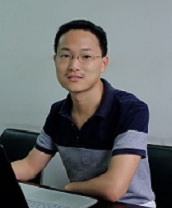 Background: Mr. Wang entered the Ph.D. program in University of Science & Technology of China in 2008. His advisor is Dr. Yao Xuebiao. His research work mainly focused on the molecular basis of microtubule dynamics and its regulation. He and his collaborators showed that dynamic regulation of EB1 acetylation orchestrates proper mitosis.
Background: Mr. Wang entered the Ph.D. program in University of Science & Technology of China in 2008. His advisor is Dr. Yao Xuebiao. His research work mainly focused on the molecular basis of microtubule dynamics and its regulation. He and his collaborators showed that dynamic regulation of EB1 acetylation orchestrates proper mitosis.
Citation: Mr. Wang works very hard and made a highly significant discovery. He was very clear about his own research, and described the project step by step. He is very thoughtful, has good knowledge about cell division. He made an excellent expression. He answers question firmly and clearly. He is persistent in his studies, and could follow the new trend of the field.
This prize is sponsored by Chinese Biological Investigators Society.
Yanbo Zhang
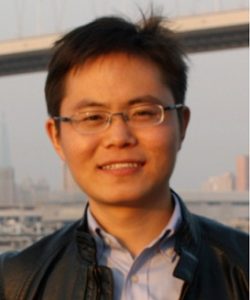 Background: Mr. Zhang received his BS from Henan University in 2008, and entered the PhD program in Institute of Biochemistry and Cell Biology (IBCB), Shanghai Institutes for Biological Sciences, Chinese Academy of Sciences, where he studies under Dr.Wang Hongyan. His research focus is on immunology. His work showed that VEGFR-3 and VEGF-C negatively regulate TLR4 signaling in macrophages and prevent host from septic shock, which might have broad ramifications.
Background: Mr. Zhang received his BS from Henan University in 2008, and entered the PhD program in Institute of Biochemistry and Cell Biology (IBCB), Shanghai Institutes for Biological Sciences, Chinese Academy of Sciences, where he studies under Dr.Wang Hongyan. His research focus is on immunology. His work showed that VEGFR-3 and VEGF-C negatively regulate TLR4 signaling in macrophages and prevent host from septic shock, which might have broad ramifications.
Citation: : Mr. Zhang is thoughtful and motivated. He is familiar with the field and literature. He has independently designed the macrophage studies. He is aware of other topics, especially tummor immunology. He can talk clearly with confidence. He addressed questions with precision.
This prize is sponsored by The Xu and Chen Foundation.
Jie Li
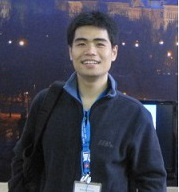 Background: Mr. Li entered the Ph.D. program in Shanghai Jiaotong University of Medicine in 2007. His advisor is Dr. Chen Guoqiang. His research work mainly focused on the molecular mechanisms underlying sumoylation of HIF-1α and its roles in cancer progression. He reported that Cbx4 governs HIF-1α to potentiate angiogenesis of hepatocellular carcinoma by its SUMO E3 ligase activity.
Background: Mr. Li entered the Ph.D. program in Shanghai Jiaotong University of Medicine in 2007. His advisor is Dr. Chen Guoqiang. His research work mainly focused on the molecular mechanisms underlying sumoylation of HIF-1α and its roles in cancer progression. He reported that Cbx4 governs HIF-1α to potentiate angiogenesis of hepatocellular carcinoma by its SUMO E3 ligase activity.
Citation: Mr. Li is persistent and highy motivated. He works hard and spends 7 years to reach the final goal. He understood his work thoroughly, and was able to identify an impotant pathway. He has broad knowledge of transcription regulation. He was able to communicate in English and experss himself very well. He wants to solve important problems.
This prize is sponsored by The Yu and Wei Foundation.
Zhe Ying
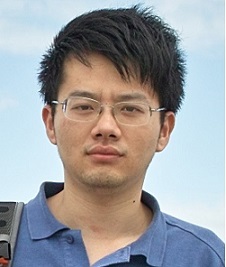 Background: Mr. Ying received his BS from Zhongshan University in 2009, and is conducting his Ph.D. study in the laboratory of Dr. Li Mengfeng at Zhongshan University. Zhe’s research focused on mechanisms governing stemness and invasiveness of cancer cells. He successfully identified AGK-JAK2 interaction as a mechanism by which JAK2 is constitutively activated independent of mutation of JH2 domain in esophageal squamous carcinoma. He has also found that silencing of miR-204 as a shared mechanism between glioma and neuron stem cells, which guarantees the highly expression of stemness governing and cell migration promoting genes.
Background: Mr. Ying received his BS from Zhongshan University in 2009, and is conducting his Ph.D. study in the laboratory of Dr. Li Mengfeng at Zhongshan University. Zhe’s research focused on mechanisms governing stemness and invasiveness of cancer cells. He successfully identified AGK-JAK2 interaction as a mechanism by which JAK2 is constitutively activated independent of mutation of JH2 domain in esophageal squamous carcinoma. He has also found that silencing of miR-204 as a shared mechanism between glioma and neuron stem cells, which guarantees the highly expression of stemness governing and cell migration promoting genes.
Citation: Mr. Ying was able to extend his current studies to another field. He is familiar with the related field, but his knowledge about other broad topics is limited. His verbal expression is good. He is enthusiastic about science, and has a clear vision on what he likes to do in the future.
This prize is sponsored by Promega Corporation, Inc.
Jingjing Zheng
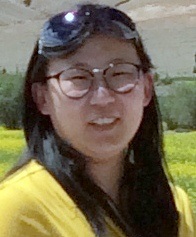 Background: Ms. Zheng entered her Ph.D. program in Institute of Neuroscience, Shanghai Institutes for Biological Science, Chinese Academy of Science in 2007. Her advisor is Dr. Yu Xiang. She focuses on studing the effect sensory experience on cortical excitatory neurons. She found that early unimodal sensory deprivation, either through whisker-deprivation or dark-rearing, significantly reduced excitatory synaptic transmission layer II/III pyramidal neurons of the correspondence sensory cortex, and crossmodally in other sensory cortices.
Background: Ms. Zheng entered her Ph.D. program in Institute of Neuroscience, Shanghai Institutes for Biological Science, Chinese Academy of Science in 2007. Her advisor is Dr. Yu Xiang. She focuses on studing the effect sensory experience on cortical excitatory neurons. She found that early unimodal sensory deprivation, either through whisker-deprivation or dark-rearing, significantly reduced excitatory synaptic transmission layer II/III pyramidal neurons of the correspondence sensory cortex, and crossmodally in other sensory cortices.
Citation: Ms. Zheng is mature. She can independently design experiments to support her hypothesis. She completed a difficult project, which represents a new discovery about a novel molecular mechanism. She is reasonable familiar with the field. Mr. Zheng wants to dedicate to study autism. She cares about the health status of the large population.
This prize is sponsored by The Xu and Chen Foundation.
Jian Shu
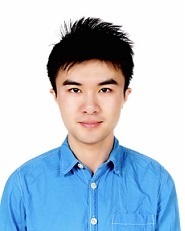 Background: Mr. Shu entered the PhD program in Peking University, where he studies under Dr. Hongkui Deng in 2009. The project he has been studying is to find the substitutes for the most import pluripotency factor Oct4 in the process of induction of iPSCs. He designed a system for genome-wide screening of Oct4 substitutes, and discovered a combination of two small molecules to enable the successful screening. He proved that pluripotency factors might direct lineage specification, and that lineage specifiers might in turn facilitate induction of pluripotency.
Background: Mr. Shu entered the PhD program in Peking University, where he studies under Dr. Hongkui Deng in 2009. The project he has been studying is to find the substitutes for the most import pluripotency factor Oct4 in the process of induction of iPSCs. He designed a system for genome-wide screening of Oct4 substitutes, and discovered a combination of two small molecules to enable the successful screening. He proved that pluripotency factors might direct lineage specification, and that lineage specifiers might in turn facilitate induction of pluripotency.
Citation: Mr.Shu shows the passion in current research work. He is responsible for modifying the screening method so it is possible to identify more important factors. He is very good in big picture of biology, and has quite innovation minds. He can answer all of questions clearly with fluent English.
This prize is sponsored by The Xu and Chen Foundation.
RWMF members at the award ceremony for the 2014 Ray Wu Prize
